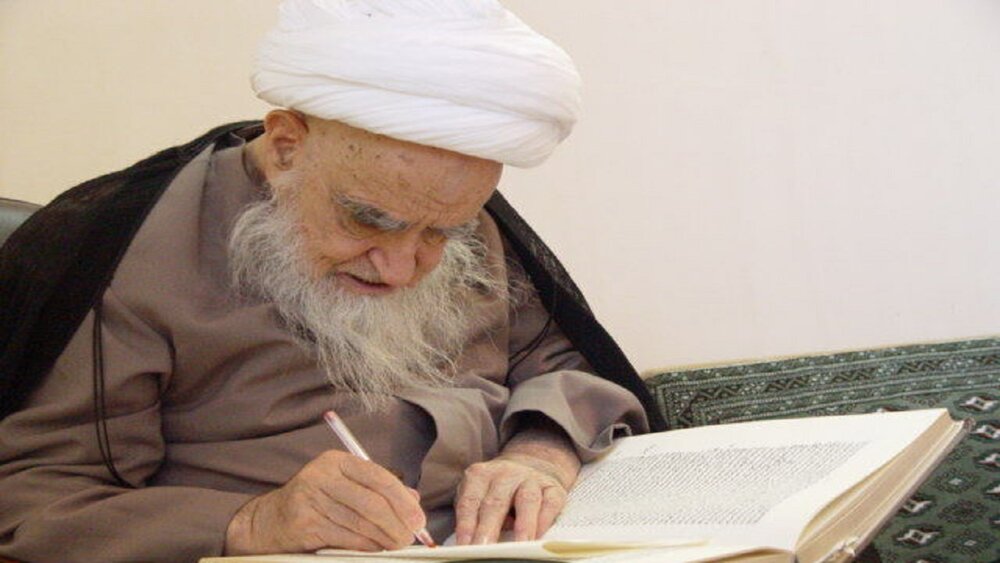Hawzah News Agency - Has the “principle of grace” been derived from the traditions and narrations of the Ahl al-Bait (peace be upon them) or has it entered Shi‘a kalam (theology) through the contact of the Shi‘a with the Mu‘tazila? And what is the method of applying this principle with the existence of the concealed Imam?
Since the Shi‘a have many proofs regarding the principle of Imamah aside from the principle of grace, with the existence of those proofs, if the principle of grace is relied upon, it is for the purpose of supporting the proofs.
As for the contact of the Shi‘a with the Mu‘tazila, who are sometimes referred to as the adliyya (Equitists) as opposed to the Asha‘ira, it should be known that though the Mu‘tazila, a sect that splintered off from the Asha‘ira and came into being after the Shi‘a, were in agreement with the Shi‘a over some beliefs and theological issues, this is not proof of their affecting the Shi‘a school. Rather, it is instead proof of their being affected by Shi‘a beliefs, since the Asha‘ira are a sect that came into being later on. Moreover, as was mentioned, all of the Shi‘a beliefs are taken from reason, the Glorious Qur’an, and traditions of the Ahl al-Bait (peace be upon them). The principle of grace is also from the Shi‘a themselves and is derived from those very sources and origin.
It is in a tradition that Jabir asked the Prophet of Allah (peace be upon him and his family) about the benefit of the existence of a concealed Imam and the way of deriving benefit from his existence during the concealment. The Prophet (peace be upon him and his family) said in reply,
أَيْ وَالَّذِي بَعَثَنِي بِالنُّبُّوَةِ! إِنَّهُمْ يَنْتَفِعُونَ بِهِ وَيَسْتَضْيِئُونَ بِنُورِ وِلاَيَتِهِ فِي غَيْبَتِهِ كَانِتْفَاعِ النَّاسِ بِالشَّمْسِ وَإِنْ جَلَّلَهَا السَّحَّابِ.
“Yes, by the One who sent me with the prophecy! Verily they benefit from him and seek light from the illumination of his wilayah (authority) during his concealment just as people benefit from the sun though it has been covered by clouds.”1
To negate in entirety that the existence of a concealed Imam is lutf (grace) is not proper for a rational person who is unaware of unseen affairs. After the Imamah itself and his concealment are established, certainty of the existence of grace and presence of a benefit in his existence is necessary, since if the appointment of an Imam who has been commanded to go into concealment does not entail grace, it is futile and vain; and Allah is far above vain and futile actions. Therefore, the appointment of a concealed Imam by Allah certainly entails lutf (grace).
Granted, if we wish to establish both the necessity of appointment of an Imam and the Imamah of a concealed person through the principle of grace, the objection arises that it must first be known that the concealed Imam entails grace. Otherwise, without knowledge of its being grace, his Imamah will not be established. However, we establish the necessity of appointment of an Imam through the principle of grace and the Imamah of the concealed Imam through other firm proofs, and by joining these two proofs to the fact that Allah does not do anything in vain, it is established that the Imamah of the concealed Imam entails grace. The statement of al-Muhaqqiq al-Tusi, who says;
وُجُودِهِ لُطْفٌ وَتَصْرِفُهُ لُطْفٌ آخِرَ وَعَدَمُهُ مِنَّا.
is based on the principle that the existence of the Imam is grace absolutely, whether manifest or hidden. And this is a principle that has been established in accordance with the speech of Amir al-Mu’minin (peace be upon him), who says:
لَئَلَّا تُبْطِلُ حُجَجِ اللهِ وَبَيِّنَاتِهِ.
The Divine proofs and signs are protected by the existence of the Imam, whether he be present or concealed.
It is worthy of mention that if the objection of the absence of grace with regard to the concealed Imam be valid, it is also applicable to an Imam who is not concealed, yet who is not able to act freely in affairs. His Imamah will be without grace for the same reason that the Imamah of the concealed Imam is regarded as being without grace. However, this objection has not been made with regard to the manifest Imam who is not able to freely act in the affairs and tasks pertaining to Imamah. Similarly, it has not been made regarding a prophet who, due to circumstances, is unable to guide others or whose guidance is not effective, or a prophet whose mission was general, but opponents and adversaries prevented his message from reaching the entire public, and it has not been denied that his prophecy entails grace.
It is possible to establish a rational proof of the Imamah of the concealed Imam (peace be upon him) with the exposition that appointment and specification of the Imam by Allah is grace, and grace is obligatory upon Allah. Therefore, Allah has appointed someone to Imamah after Imam Hasan al-‘Askari (peace be upon him), and that person will not be other than his son, since the incapacity and invalidity of the other claimants to Imamah has been established and at present, no one has such a claim. Thus, either Allah has withheld grace to His servants during the period of concealment, which is opposed to Divine wisdom, or He has appointed an Imam out of grace, in which case the Imam is none other than the twelfth Imam.
1. al-Zam al-Nasib, Volume 1, Page 429
Source: "Discussions Concerning al-Mahdi (May Allah Hasten His Return)" written by Ayatullah Lutfullah Safi Golpaygani


Your Comment